Step back in time among Turkey’s ancient relics, writes Aby Dunsby.
Set at the crossroads between Europe and Asia, it’s no wonder that Turkey is a glorious melting pot of east and west.
History books are filled with stories of the greats who once passed through these lands, from Julius Caesar to Helen of Troy, and the ebb and flow of eras and empires have left an indelible mark on this historic land, its people and its culture.
There’s no getting away from the fact that bookings are down this year, but there are good reasons to keep up confidence in Turkey. It offers a beach break like no other, with a wealth of ancient monuments – from crumbling Lycian ruins to Ottoman mosques and Roman amphitheatres – adding a cultural dimension to a coastal escape.
Whether clients plan on going it alone or taking an escorted tour, visiting Turkey’s many relics is the perfect way to soak up more than just sun.
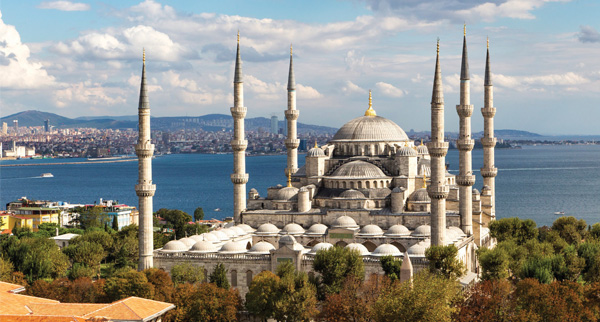
1 Blue Mosque
History is alive in Turkey’s vibrant capital, where frescoed Byzantine mosques and jewel-filled Ottoman palaces punctuate the skyline, alongside colourful bazaars selling heaps of dried apricots and pistachios.
Clients can start their cultural immersion at Istanbul’s most iconic attraction, the Blue Mosque, a majestic mass of domes and minarets which was built in the 17th century during the rule of Ahmed I, and whose beauty was intended to rival the Hagia Sofia, the mosque that stands on the other side of Sultanahmet Park. The latter is a beautiful symbol of the country’s complex past: first a Byzantine Christian church, then a mosque, now a museum, the building is one of the best‑preserved ancient sites in the world.
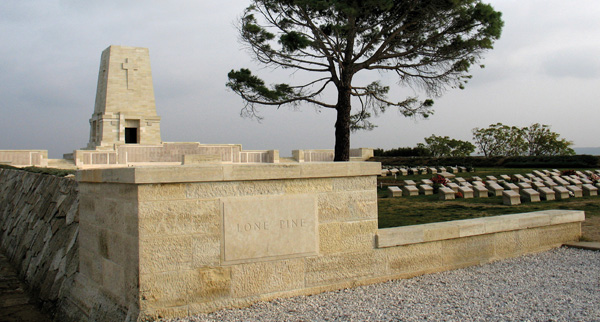
2 Gallipoli
Clients with an interest in more-recent history will find plenty of fodder in Gallipoli, a peninsula in northwest Turkey. Relatives of Anzac soldiers and Turks come to commemorate those who lost their lives here on the battlefields during the 1915 landings. Anzac Day, on April 25, is the busiest time, when thousands of visitors from Australia and New Zealand arrive to remember the Allied defeat by visiting the war cemeteries, so be sure to tell clients to book ahead if they are planning a trip during this time.
Leger Holidays offers a seven-day Gallipoli Battlefields tour, from £995, while plenty of operators include a Gallipoli pit-stop as part of a wider tour, including Insight Vacations’ 11‑day Wonders of Turkey trip, from £1,325.
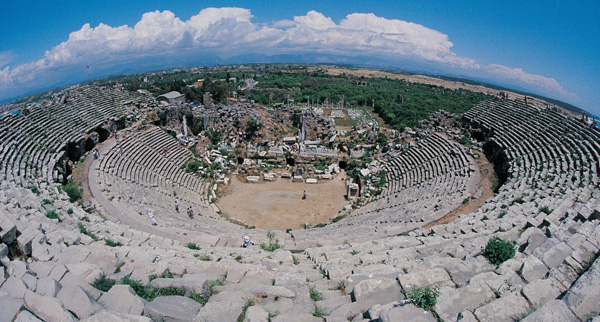
3 Aspendos
Thirty miles east of Antalya lies Aspendos, an ancient Greco-Roman city popular with tourists for its magnificent theatre, considered to be the best-preserved Roman theatre in the world. It was built in AD155 by the Greek architect Zenon to celebrate the grandeur of Marcus Aurelius’s rule, and went through a host of uses in later years, even being converted into an inn in the 13th century.
Today, the amphitheatre, which seats 15,000 people, plays host to various summer events, including the Aspendos International Opera and Ballet Festival (June 1 to September 15).
Nearby relics include the crumbling remains of a basilica, an agora and a Roman aqueduct. Trafalgar’s 14-day Best of Turkey tour includes a trip to the Aspendos theatre, from £1,325.
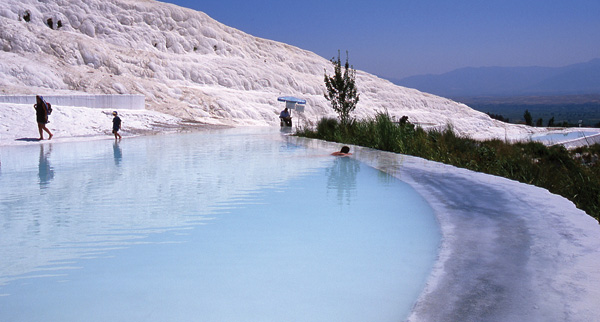
4 Pamukkale
Bathing in the mineral-rich waters of chalky travertine terraces might not be anything new for some clients – they are sprinkled across the globe from China to the US – but it’s the location of Pamukkale, below the Roman Byzantine spa city of Hierapolis, that makes it Turkey’s most-visited attraction.
Pamukkale, meaning ‘cotton fortress’ in Turkish, has been a spa destination since the Romans built the spa city of Hierapolis around a sacred hot spring, and the Antique Pool, which the Romans once swam in, remains there to this day for visitors to soak themselves in.
Nearby is the little-visited archaeological site of Aphrodisias, named after the Greek goddess of love, and whose remoteness benefits from a lack of tourist throngs.
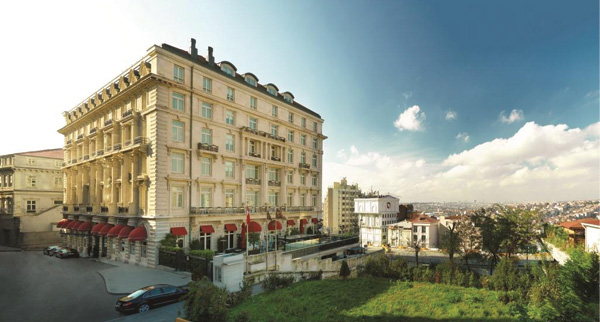
5 Pera Palace Hotel
Step through the doors of the Jumeirah Pera Palace Hotel and you’re walking in the footsteps of the glamorous guests who stayed here, turning this late-Victorian grand dame into an icon of Istanbul’s artsy heritage.
Sumptuous suites are dedicated to two of its most famous guests: mystery writer Agatha Christie, who is said to have written Murder on the Orient Express here, and Ernest Hemingway, who glugged whiskies in its Orient Bar.
Room 101, aka the Ataturk Museum Room, is a homage to Kemal Ataturk, founder of modern-day Turkey, who first stayed here in 1917.
The recently renovated hotel is a blend of neoclassical, art nouveau and oriental styles, and exudes a timeless glamour. Clients will enjoy afternoon tea within the marble columns of the Kubbeli Saloon, accompanied by music played on the grand piano. Rates for a Deluxe Pera Side King Room start at £124 a night.
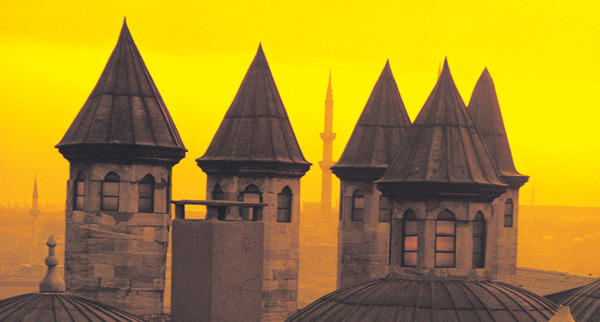
6 Topkapi Palace
Once home to silk-robed sultans, this ornate imperial court in Istanbul was the focus of social and political life for the Ottoman Empire between the 15th and 19th centuries, containing mosques, a hospital, bakery and even a mint. Now a Unesco World Heritage Site, Topkapi Palace gives a fascinating insight into the lives of the 4,000 people that once lived here, and clients can while away a morning exploring the Treasury Room, which contains heaps of diamonds, rubies and pearls, or enjoy a pause from the busy city below, wandering around a collection of buildings surrounded by pretty gardens and laced with courtyards and pavilions.

7 Cappadocia
The region of Cappadocia will wow clients with its otherworldly natural landscape of cave formations, cones and ‘fairy chimneys’, all moulded from soft volcanic rock and shaped by years of wind and water erosion. Some of the ancient pinnacles are inhabited and have been turned into quirky cave hotels, where clients can bed down for a unique accommodation experience.
Other Cappadocia must-visits include the cave churches and monasteries of the Göreme Open‑Air Museum, which the Christian population once decorated with frescoes of medieval saints; and the man-made underground cities of Derinkuyu and Kaymaklı. If clients don’t fancy hiking, they can take a hot-air balloon tour at dawn to see the rippled moonscape from above. Anatolian Sky’s eight-day Cappadocia & Beyond tour includes an optional hot‑air balloon ride, from £999.

8 Konya
Turkey’s whirling dervishes are emblematic of the country, but it’s here in their home town of Konya that clients can witness the real deal. In the heart of the old town lies the tomb of Jelaluddin Rumi, the famed poet, mystic and Sufi saint, whose followers continue to make the pilgrimage to his resting place, with many losing themselves in a sort of trance of non‑stop spinning.
Konya was founded by the Hittites, and later home to Phrygians, Persians and Romans, to name but a few. By 1071, the Selkuks had taken over, and clients can marvel at the tribe’s architectural legacy by roaming the city’s maze of ancient mosques and markets on a guided tour, such as that included in Insight Vacations’ Treasures of Turkey itinerary (from £1,425).
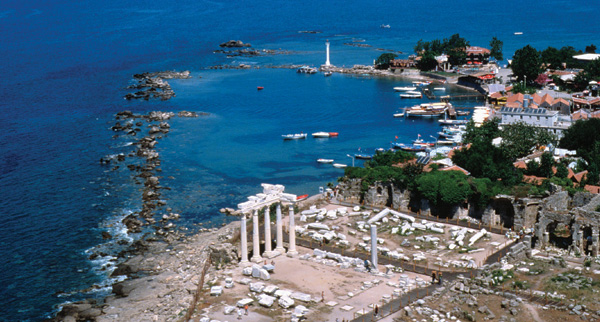
9 Side
This ancient city ticks plenty of boxes: while monuments including a majestic Greco-Roman amphitheatre will satisfy clients with an appetite for ancient history, the resort town’s pretty beaches, chic modern boutiques and popular bars and restaurants offer a break from sightseeing. Plenty of airlines fly into nearby Antalya, making Side an affordable, easily accessible option for those who want to combine culture with beachside lazing.
Once clients have topped up their tans, they can spend a day marvelling at the pillars of the Temples of Apollo and Athena, which look out over the countryside and the Mediterranean Sea. Alternatively, trace the story of Dionysos – the Greek god of wine – along the exterior columns of the amphitheatre; or explore the archaeological relics housed within the walls of the museum, which is something of a monument in itself, based in the remains of a restored second-century Roman bathhouse said to have been frequented by Anthony and Cleopatra.
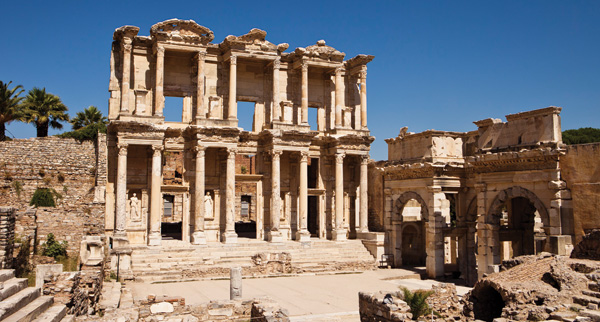
10 Ephesus
The real jewel in Turkey’s historic crown lies in the ancient city of Ephesus, which boasts numerous well-preserved monuments and remains Europe’s most complete classic metropolis, despite only 15% of it having been unearthed. Ephesus used to be the most important commercial centre of the ancient world, with 250,000 people once living here, and its importance as a religious centre for early Christianity means the city remains a site of pilgrimage. Clients can ramble up to the remains of the Temple of Artemis, one of the Seven Wonders of the Ancient World, or walk through the ruins of the Celsus Library, Odeon indoor theatre and Temple of Hadrian.
Ask the expert
Daniel Pawlyn, head of business development, Intrepid Travel
“Turkey’s location means that it receives influences from Europe, Asia and the Middle East, giving it a unique cultural identity. The country has so much to offer clients with a passion for culture and history, from archaeological sites and magnificent mosques to curious landscapes straight out of a storybook.”
Sample product
Explore offers a 15-day Highlights of Turkey tour which includes visits to Cappadocia, Ephesus and Istanbul, from £1,465, including flights.
Anatolian Sky Holidays offers a seven-night Highlights of Turkey tour from £1,249, based on two sharing, including flights.




